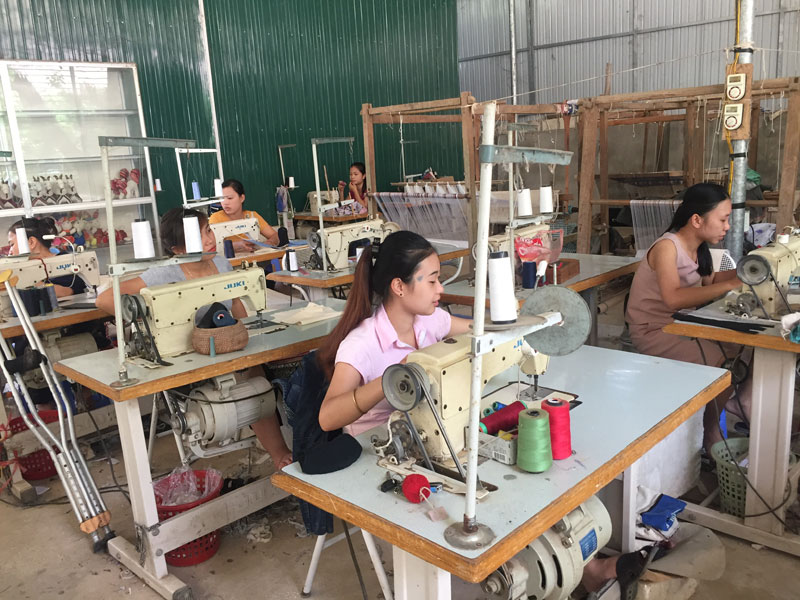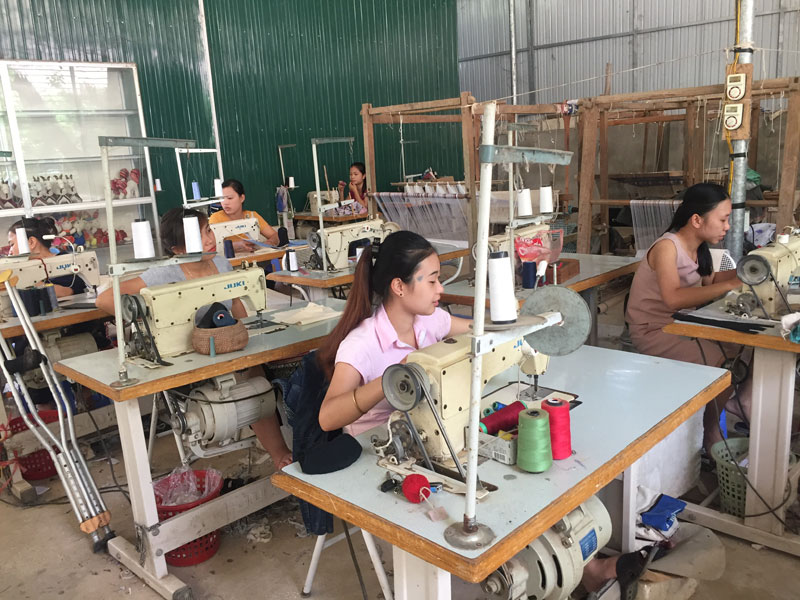
(HBO) – When mentioning Mai Chau, it must be mentioned about brocade weaving products. Together with the trend of integration and development, cooperatives and households that are maintaining and developing brocade weaving career have contributed to create a new direction in economic development, promoting cultural identity associated with the formation and development of Mai Chau district.
The whole district has dozens of textile
villages in operation. Among them, five traditional handicraft villages have
been recognized, concentrated in the center of Mai Chau town and Pa Co, Xam
Khoe, Na Phon, Chieng Chau, Mai Hich communes, etc. In addition, many households
preserving weaving career are dispersed in most communes in the district. By
preserving and developing handicraft villages associated with tourism, weaving
products from brocades with Thai ethnic cultural identity are closer to
visitors, which means that traditional products have more chances to be
promoted in the market and abroad.

Thuan Hoa Social Welfare Co-operative (Chieng
Chau Brocade and Travel Co-operative) currently has 35 employees.
Not only contributing to attract tourists,
but the cooperatives also create jobs, raising incomes for many female workers,
including women with disabilities. For women who want to take advantage of free
time to increase their income, the cooperatives also create conditions for
women to bring products to make at their home and earn a living wage. Mrs. Mua
Y Nhanh, The Chairman of Pa Co Con brocade weaving village in Pa Co commune,
said: The cooperative currently has 250 members, of which 50 are engaged in
brocade weaving with an average income of 3 million VND / person / month.
Besides selling to tourists, the products are also linked to be consumed in a
number of foreign markets such as India, Thailand, and Cambodia. In order to
promote the image of products to customers, the Cooperative has cooperated with
the Museum of Vietnamese Women. Accordingly, the most distinctive products,
models and good quality will be displayed and sold at the museum.
According to data from the Hoa Binh Provincial Party Committee, the industrial production index for the first six months of 2025 is estimated to have increased by 20% compared to the same period last year. This marks the highest year-on-year growth rate for this period since 2020.
In the first six months of 2025, Hoa Binh province’s export turnover was estimated at 1.145 billion USD, marking an 18.11% increase compared to the same period in 2024. Import turnover was estimated at $ 804 million, a 17.15% increase, which helped the province maintain a positive trade balance.
The lives of the ethnic minority farmers in Tan Lac district have gradually improved thanks to the new directions in agricultural production. This is a testament to the collective strength fostered through the professional associations and groups implemented by various levels of the district’s Farmers’ Union.
With the motto the "product quality comes first,” after nearly one year of establishment and operation, Muong village’s Clean Food Agricultural and Commercial Cooperative, located in Cau Hamlet, Hung Son Commune (Kim Boi district), has launched reputable, high-quality agricultural products to the market that are well-received by consumers. The products such as Muong village’s pork sausage, salt-cured chicken, and salt-cured pork hocks have gradually carved out a place in the market and they are on the path to obtaining the OCOP certification.
In the past, the phrase "bumper harvest, rock-bottom prices" was a familiar refrain for Vietnamese farmers engaged in fragmented, small-scale agriculture. But today, a new spirit is emerging across rural areas of Hoa Binh province - one of collaboration, organisation, and collective economic models that provide a stable foundation for production.
Maintaining growing area codes and packing facility codes in accordance with regulations is a mandatory requirement for agricultural products to be eligible for export. Recently, the Department of Agriculture and Environment of Hoa Binh province has intensified technical supervision of designated farming areas and packing facilities to safeguard the "green passport" that enables its products to access international markets.



